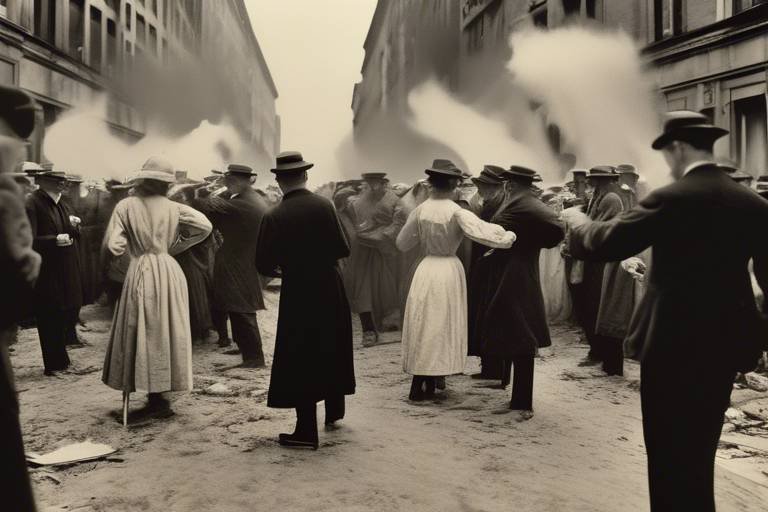The Influence of Ancient Mediterranean Cultures on Modern Society
Ancient Mediterranean cultures have left an indelible mark on modern society, shaping various aspects of our lives in profound ways. From philosophy and democracy to engineering and architecture, art and symbolism to trade and commerce, military strategies to religious beliefs, these ancient civilizations continue to influence our contemporary world in ways we may not even realize.
One of the most significant contributions of ancient Greek civilization is its philosophy and the establishment of democracy. The ideas of great thinkers like Socrates, Plato, and Aristotle have laid the foundation for modern political systems and societal values. The concept of democracy, born in Athens, continues to shape governance structures around the globe, emphasizing the importance of citizen participation and equality.
When we look at Roman civilization, we cannot ignore the remarkable advancements in engineering and architecture. The Romans built aqueducts, roads, and amphitheaters with precision and grandeur, setting standards that still influence modern construction techniques and urban planning. Their innovative use of arches and domes can be seen in iconic structures like the Pantheon and the Colosseum.
Egyptian art and symbolism have captivated the world for centuries with their intricate hieroglyphics, majestic pyramids, and mystical deities. The symbolism and aesthetic principles of ancient Egypt continue to inspire contemporary art, design, and cultural representations, infusing them with a sense of mystery and grandeur.
The Phoenicians, known for their maritime prowess and extensive trade networks, have left a lasting impact on modern global economies and maritime industries. Their commercial practices and seafaring skills laid the groundwork for today's interconnected world of trade, influencing everything from shipping routes to business practices.
Carthage, with its formidable military strategies and tactics, has lessons that resonate even in modern warfare and defense planning. The innovative approaches of Carthaginian generals like Hannibal have been studied and applied in military academies worldwide, showcasing the enduring relevance of ancient military wisdom.
The Etruscans, with their rich religious beliefs and elaborate rituals, have influenced modern spiritual practices and cultural traditions. Their reverence for divination, burial customs, and religious ceremonies has left a legacy that can still be seen in various aspects of contemporary spirituality and cultural expressions.
The Minoan and Mycenaean civilizations, known for their complex societal structures and cultural contributions, offer insights into the origins of contemporary social norms and customs. Their art, architecture, and societal organization provide a window into the development of modern society, highlighting the interconnectedness of past and present.
Sicilian cuisine, a delightful fusion of flavors from various Mediterranean cultures, reflects the culinary heritage of the region and its influence on modern gastronomic trends. The diverse ingredients, bold flavors, and unique culinary techniques of Sicily have shaped modern palates and culinary traditions, showcasing the enduring appeal of Mediterranean cuisine.
Lastly, the Byzantine Empire's artistic legacy, with its intricate iconography and religious art, continues to influence visual culture in the modern world. The vibrant mosaics, religious paintings, and architectural marvels of Byzantium have inspired artists and designers, leaving a lasting imprint on religious art and cultural aesthetics.
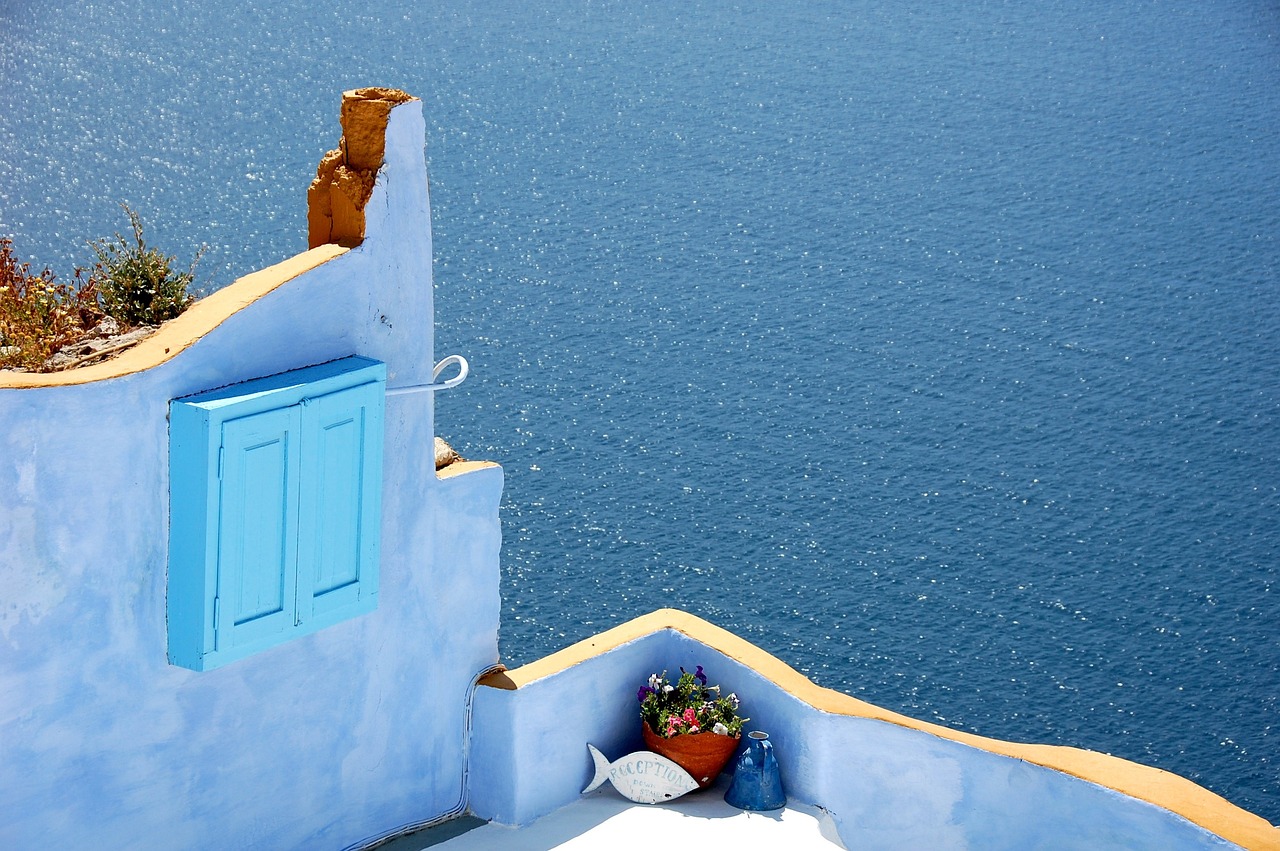
Ancient Greek Philosophy and Democracy
Ancient Greece, known for its rich philosophical traditions and the birth of democracy, has left an indelible mark on modern society. The profound insights of Greek philosophers such as Socrates, Plato, and Aristotle continue to shape contemporary thought and intellectual discourse. Their inquiries into ethics, metaphysics, and politics laid the foundation for Western philosophical thinking, influencing various fields from ethics to politics.
Moreover, the concept of democracy, originating in ancient Athens, revolutionized governance systems worldwide. The notion of citizen participation in decision-making, equality before the law, and the protection of individual rights are all principles deeply rooted in Greek democracy. These ideals have transcended time and are fundamental pillars of modern democratic societies, guiding governmental structures and policies.
By examining the philosophical musings of ancient Greek thinkers and the innovative democratic practices of the past, we gain a deeper understanding of our current societal values and political systems. The legacy of ancient Greek philosophy and democracy serves as a beacon of intellectual enlightenment and democratic governance, illuminating the path towards a more just and equitable society.
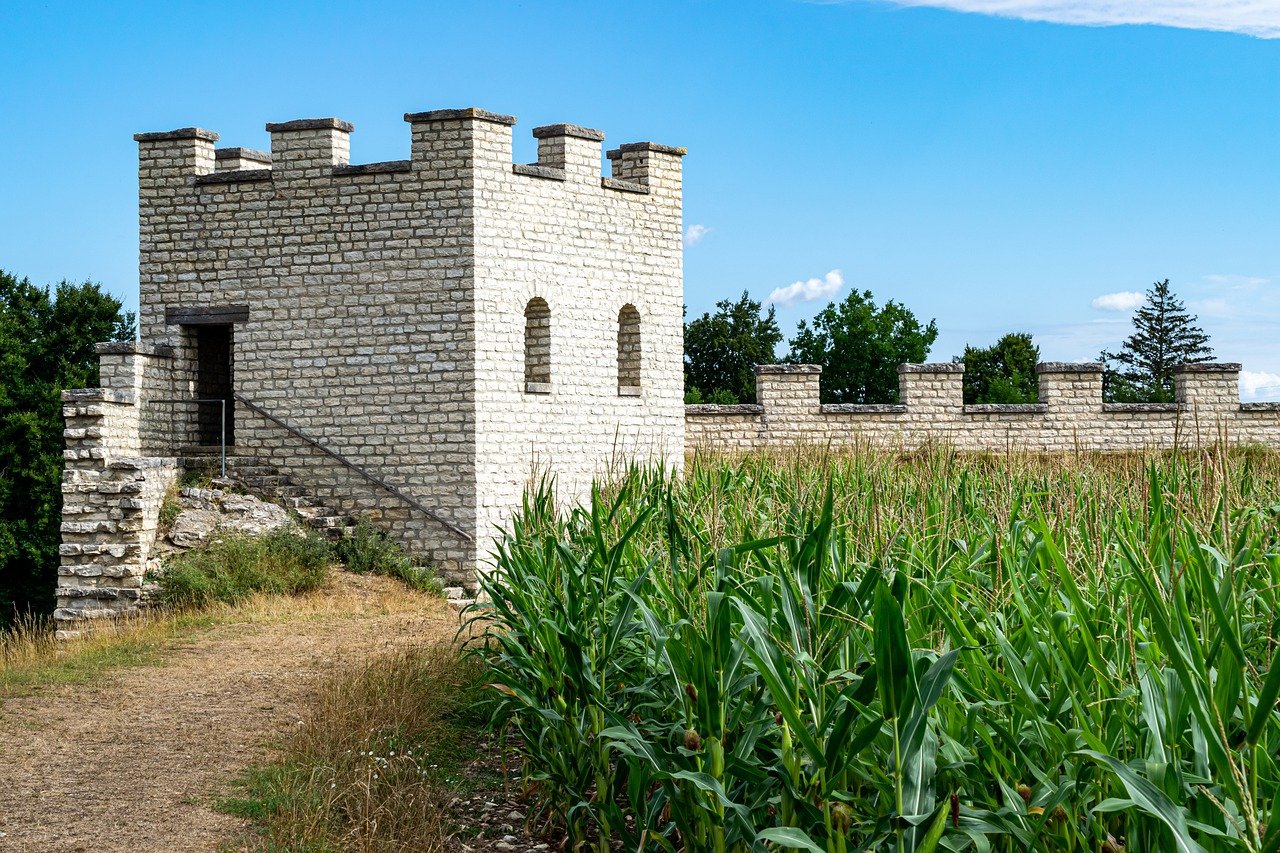
Roman Engineering and Architecture
When we think of Rome, images of grand structures like the Colosseum and aqueducts come to mind. The Romans were pioneers in engineering and architecture, leaving a lasting impact on how we build and design today. Their innovative techniques and monumental structures have stood the test of time, shaping modern construction practices and urban planning.
One of the most remarkable aspects of Roman engineering was their mastery of arches and domes. By utilizing the arch, they were able to create expansive structures like the Pantheon, showcasing their ingenuity in designing large, open spaces. This architectural feat has influenced countless buildings worldwide, with modern architects still drawing inspiration from the Romans' structural innovations.
Moreover, Roman aqueducts exemplify their advanced engineering skills. These intricate systems transported water over long distances, showcasing their expertise in hydraulic engineering. The concept of aqueducts has been integral to the development of modern water supply systems, highlighting the enduring legacy of Roman engineering in ensuring access to clean water for communities.
Additionally, Roman urban planning principles have shaped modern city layouts. The grid system, first implemented in ancient Roman cities like Pompeii, provided a structured approach to urban development. This organized layout has been adopted in contemporary city planning, influencing the design of streets, neighborhoods, and public spaces to optimize functionality and efficiency.
Furthermore, the use of concrete by the Romans revolutionized construction methods. Their development of concrete as a building material allowed for the construction of durable and versatile structures. The Pantheon, with its concrete dome, stands as a testament to the durability of Roman concrete, inspiring modern builders to explore innovative construction materials and techniques.
In conclusion, Roman engineering and architecture have left an indelible mark on modern construction practices and urban design. Their pioneering spirit, technical expertise, and monumental achievements continue to shape the built environment, reminding us of the enduring legacy of ancient Roman ingenuity.
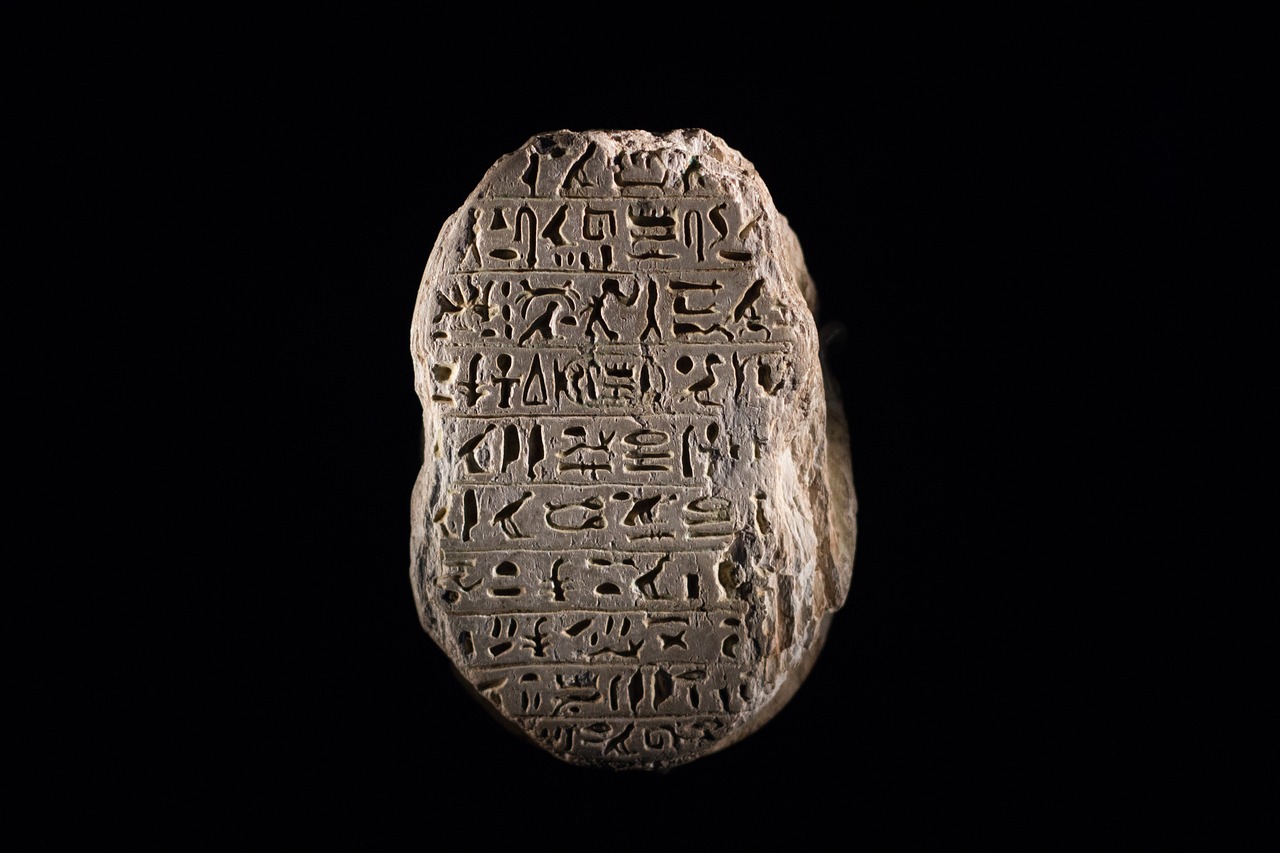
Egyptian Art and Symbolism
When delving into the realm of Egyptian art and symbolism, we are transported back in time to a civilization steeped in mystique and grandeur. The ancient Egyptians were masters of visual storytelling, using intricate hieroglyphics, elaborate murals, and symbolic motifs to convey their beliefs, myths, and rituals. From the majestic pyramids of Giza to the enigmatic sphinx, every artistic creation carried profound meanings and served as a window into the spiritual and cultural world of the pharaohs.
One of the most striking aspects of Egyptian art is its enduring influence on contemporary art and design. The iconic imagery of gods and goddesses, the intricate patterns of hieroglyphs, and the vibrant colors used in ancient Egyptian art continue to inspire artists and designers worldwide. The timeless appeal of Egyptian symbolism can be seen in modern interpretations of jewelry, fashion, and interior decor, where motifs like the ankh, scarab beetle, and eye of Horus still hold significant symbolic value.
Moreover, Egyptian art played a crucial role in shaping cultural representations and narratives. The elaborate tomb paintings, funerary masks, and statues of pharaohs reflected not only the artistic prowess of the ancient Egyptians but also their beliefs in the afterlife and the divine. These artistic expressions served as a bridge between the earthly realm and the spiritual world, providing insights into the complex cosmology and religious practices of this ancient civilization.
Furthermore, the symbolism embedded in Egyptian art transcends mere aesthetic beauty; it carries profound meanings and messages that resonate with universal themes of life, death, rebirth, and transcendence. The use of symbols such as the ankh, symbolizing life, the scarab beetle representing regeneration, and the eye of Horus symbolizing protection, all reflect the deep spiritual and philosophical insights of the ancient Egyptians.
In conclusion, the art and symbolism of ancient Egypt continue to captivate and intrigue us, offering a glimpse into a civilization that revered beauty, spirituality, and the divine. From the majestic monuments that stand as testaments to their ingenuity to the intricate symbols that speak of profound truths, Egyptian art remains a timeless legacy that enriches our understanding of the past and inspires creativity in the present.

Phoenician Trade and Commerce
Phoenician Trade and Commerce played a pivotal role in shaping the ancient Mediterranean world and continues to influence modern global economies and maritime industries. The Phoenicians, known as master seafarers and traders, established extensive trade networks that connected the Mediterranean region with distant lands. Their expertise in navigation and shipbuilding enabled them to engage in long-distance commerce, transporting goods such as precious metals, textiles, and exotic commodities across the seas.
One of the key contributions of Phoenician trade was the development of a standardized system of weights and measures, which facilitated fair and efficient transactions. This innovation laid the foundation for modern commercial practices and influenced the evolution of trade regulations and standards. The Phoenicians' emphasis on commerce also fostered cultural exchange and diplomatic relations between different civilizations, promoting mutual understanding and cooperation.
Moreover, the Phoenicians' establishment of bustling port cities such as Carthage and Tyre served as hubs for economic activity and cultural exchange. These urban centers not only facilitated trade but also became melting pots of diverse cultures, languages, and traditions. The legacy of Phoenician commerce can be seen in modern port cities that continue to drive economic growth and international trade.
Furthermore, the Phoenicians' mastery of maritime trade routes and navigation techniques influenced the development of modern shipping and logistics industries. Their use of advanced sailing vessels and navigational instruments set a precedent for efficient transportation of goods and resources by sea. The principles of trade and commerce practiced by the Phoenicians have endured through the ages, shaping the foundation of global trade networks and economic systems.

Carthaginian Military Strategies
The Carthaginians were renowned for their innovative military strategies that left a lasting impact on the art of warfare. One of the most famous Carthaginian military leaders, Hannibal Barca, is remembered for his daring tactics and brilliant maneuvers during the Second Punic War against Rome. Hannibal's use of elephants in battle and his mastery of surprise attacks revolutionized military strategy.
Carthage's military strength was also attributed to its formidable navy, which dominated the Mediterranean Sea. The Carthaginians excelled in naval warfare, utilizing advanced ship designs and strategic positioning to control key trade routes and maritime territories. Their naval prowess allowed them to project power across the sea and establish lucrative trade networks.
Moreover, Carthaginian military strategies emphasized the importance of logistics and supply lines. Hannibal's famous crossing of the Alps with his army, including elephants, showcased the Carthaginians' ability to overcome geographical obstacles through meticulous planning and resource management. This logistical expertise enabled them to sustain their forces in hostile environments and outmaneuver their adversaries.
Another key aspect of Carthaginian military tactics was their utilization of mercenaries from diverse regions, allowing them to field a diverse and adaptable fighting force. This approach gave Carthage a strategic advantage by incorporating specialized troops with unique skills and combat techniques into their armies.
Overall, the Carthaginian military strategies combined innovation, adaptability, and strategic thinking to achieve military success and challenge the dominant powers of the ancient world. Their legacy continues to inspire military theorists and historians, highlighting the enduring influence of Carthaginian warfare on modern military practices.

Etruscan Religion and Rituals
The Etruscans, an ancient civilization in Italy, had a rich and complex religious belief system that greatly influenced their rituals and practices. Their religion was deeply intertwined with everyday life, governing everything from birth to death. The Etruscans believed in various deities and spirits that controlled different aspects of the world, and they often sought guidance and protection through elaborate rituals and ceremonies.
One of the key features of Etruscan religion was their emphasis on divination and prophecy. Etruscan priests, known as haruspices, would examine the entrails of sacrificed animals to interpret omens and predict the future. This practice played a significant role in decision-making and planning, shaping both personal and political choices in Etruscan society.
Furthermore, the Etruscans placed great importance on the afterlife and the journey of the soul. They believed in an underworld ruled by the god Aita, where the souls of the deceased would continue their existence. To ensure a smooth passage into the afterlife, elaborate funerary rituals were performed, including tomb decorations, offerings, and ceremonies to honor the departed.
The Etruscans also had a strong connection to nature and the divine forces present in the world around them. They worshipped nature deities and spirits, seeking harmony with the natural elements and incorporating them into their religious practices. This reverence for nature influenced their agricultural rituals, seasonal celebrations, and overall worldview.
Overall, the Etruscan religion and rituals reflected a deep spiritual connection to the cosmos and the unseen forces that governed their lives. Their beliefs and practices not only shaped their own society but also left a lasting impact on subsequent cultures in the Mediterranean region, influencing art, architecture, and religious traditions for centuries to come.
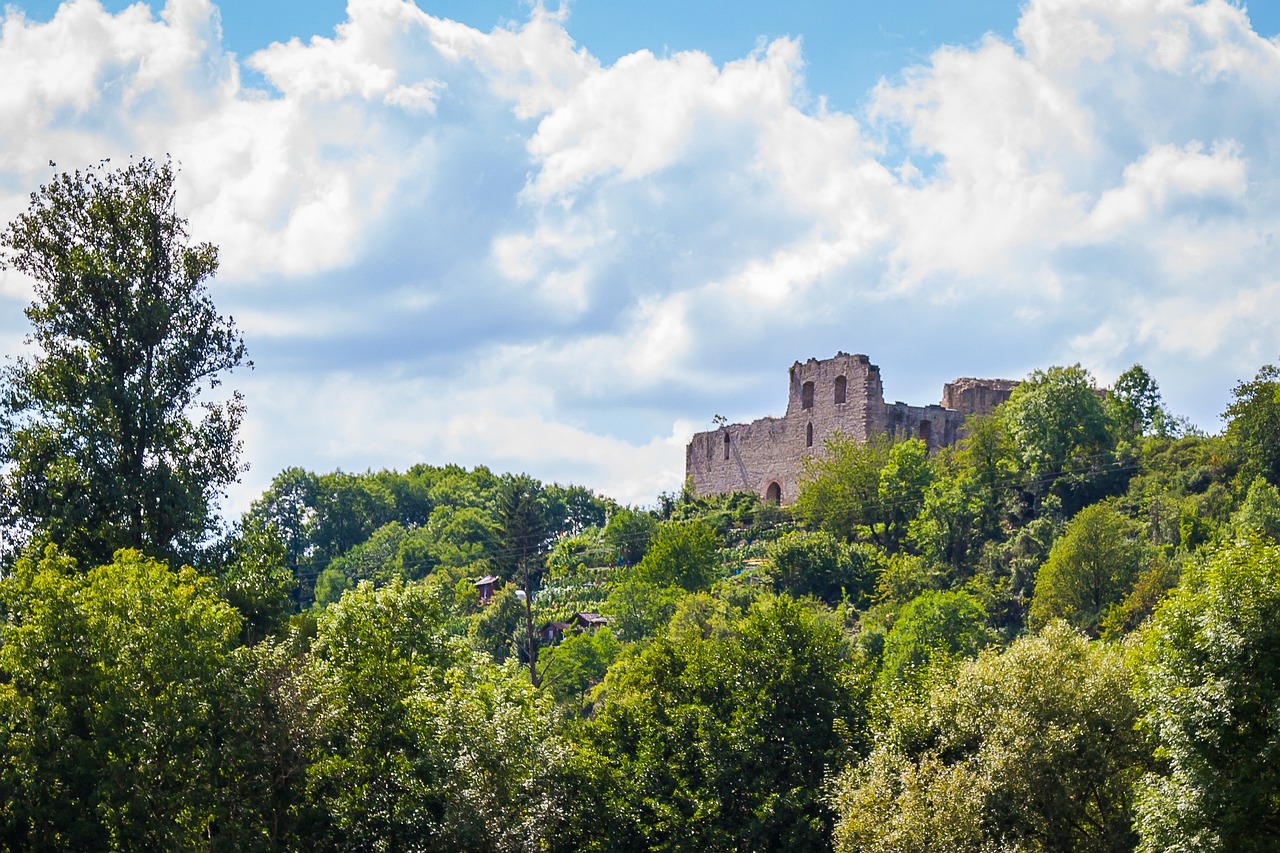
Minoan and Mycenaean Societies
The Minoan and Mycenaean societies, originating from the ancient Mediterranean region, played vital roles in shaping modern social norms and customs. The Minoan civilization, known for its advanced art and architecture, introduced intricate frescoes and vibrant pottery designs that continue to inspire contemporary artists and designers. Similarly, the Mycenaean society, with its fortified citadels and monumental tombs, laid the foundation for urban planning and architectural principles still evident in modern city layouts and construction techniques.
One of the most fascinating aspects of the Minoan and Mycenaean cultures is their intricate societal structures and cultural contributions. The Minoans, with their peaceful and prosperous society, are believed to have influenced modern concepts of community living and artistic expression. On the other hand, the Mycenaeans, known for their warrior culture and epic poetry, have left a lasting impact on contemporary literature and military strategies.
Moreover, the Minoan and Mycenaean societies were pioneers in trade and commerce, establishing extensive networks that connected the Mediterranean world. Their maritime activities and economic exchanges set the stage for modern global economies and commercial practices. The legacy of their trading routes and mercantile activities can still be seen in the bustling ports and shipping industries of today.
Furthermore, the religious beliefs and rituals of the Minoan and Mycenaean civilizations have influenced modern spiritual practices and cultural traditions. The Minoans' reverence for nature and female deities and the Mycenaeans' pantheon of gods and heroes have left a profound mark on contemporary religious beliefs and mythological narratives.
In conclusion, the Minoan and Mycenaean societies, with their rich cultural heritage and innovative contributions, continue to resonate in modern society. From art and architecture to societal structures and religious practices, the legacies of these ancient civilizations endure as enduring reminders of the enduring influence of the ancient Mediterranean cultures on the world we live in today.

Sicilian Cuisine and Gastronomy
Sicilian cuisine is a vibrant tapestry woven from a rich history of cultural influences, reflecting the island's diverse heritage. Situated at the crossroads of the Mediterranean, Sicily's gastronomy is a delightful fusion of flavors, textures, and aromas that have captivated food enthusiasts worldwide.
The culinary landscape of Sicily is a testament to the island's historical encounters with various civilizations, including the Greeks, Romans, Arabs, Normans, and Spanish. Each culture left its mark on Sicilian cuisine, contributing unique ingredients, cooking techniques, and dishes that have become iconic staples of the region.
One of the defining features of Sicilian gastronomy is its emphasis on fresh, seasonal ingredients sourced from the island's fertile lands and surrounding waters. From succulent seafood caught in the Mediterranean Sea to sun-ripened citrus fruits, Sicilian dishes are renowned for their vibrant flavors and colorful presentation.
Traditional Sicilian recipes often showcase a harmonious blend of sweet and savory elements, exemplified by dishes like caponata, a sweet and sour eggplant relish, and arancini, deep-fried rice balls filled with ragu, peas, and cheese. These culinary creations embody the essence of Sicilian cuisine, balancing bold flavors with delicate nuances.
Moreover, Sicily's culinary heritage extends beyond individual dishes to encompass a holistic approach to dining that emphasizes community, conviviality, and celebration. Meals in Sicily are not merely about sustenance but are social events that bring families and friends together around a table laden with delectable offerings.
When exploring Sicilian gastronomy, one cannot overlook the island's famed desserts, such as cannoli, cassata, and granita. These sweet treats reflect Sicily's penchant for indulgence and creativity, combining local ingredients like ricotta cheese, candied fruits, and almonds to create irresistible confections.
Overall, Sicilian cuisine is a sensory experience that transcends mere sustenance, inviting diners to embark on a culinary journey through the annals of history and culture. Whether savoring a simple pasta dish infused with fresh herbs or indulging in a decadent dessert bursting with flavors, Sicilian gastronomy is a testament to the enduring legacy of the island's culinary traditions.

Byzantine Art and Iconography
The Byzantine Empire's rich artistic tradition and iconic imagery have left a lasting mark on the world of art and culture. Byzantine art, characterized by its religious themes and intricate decorations, played a significant role in shaping the visual language of the modern era. Iconography, in particular, emerged as a prominent feature of Byzantine art, with religious icons serving as powerful symbols of faith and devotion.
Byzantine artists excelled in the use of vibrant colors, intricate patterns, and symbolic representations to convey spiritual truths and narratives. The use of gold leaf in religious paintings symbolized the divine light and heavenly presence, creating a sense of awe and reverence among viewers. Iconography, with its stylized depictions of saints, angels, and biblical scenes, became a central element of Byzantine religious worship and devotion.
The influence of Byzantine art and iconography extended far beyond the borders of the empire, spreading to regions as diverse as Russia, Italy, and the Middle East. The iconic images created by Byzantine artists served as models for religious art in Orthodox Christianity and influenced the development of Western art during the medieval period.
One of the most famous examples of Byzantine art is the Hagia Sophia in Constantinople, renowned for its magnificent mosaics, frescoes, and architectural grandeur. The intricate designs and religious symbolism found in the Hagia Sophia reflect the Byzantine Empire's commitment to blending art, architecture, and spirituality in a harmonious union.
Today, the legacy of Byzantine art and iconography can be seen in the religious artworks of Orthodox churches, the use of religious icons in worship, and the continued fascination with the mystical and symbolic aspects of Byzantine aesthetics. The enduring impact of Byzantine art on modern visual culture serves as a testament to the empire's artistic achievements and spiritual legacy.
Frequently Asked Questions
- What is the significance of Ancient Mediterranean cultures in modern society?
Ancient Mediterranean cultures, such as the Greeks, Romans, Egyptians, Phoenicians, Carthaginians, Etruscans, Minoans, and Mycenaeans, have had a profound impact on modern society. Their contributions in philosophy, art, architecture, trade, military strategies, religion, cuisine, and art have shaped contemporary political systems, cultural norms, and societal values.
- How did Greek philosophy influence modern political systems?
Greek philosophy, with its emphasis on rational thinking, ethics, and governance, laid the foundation for modern political systems. The concept of democracy, originating in ancient Greece, has become a cornerstone of many modern societies, promoting equality, citizen participation, and the rule of law.
- What is the legacy of Roman engineering and architecture?
Roman engineering and architectural innovations, such as aqueducts, roads, and amphitheaters, have greatly influenced modern construction techniques and urban planning. The enduring structures built by the Romans serve as a testament to their advanced engineering skills and continue to inspire contemporary architects and engineers.
- How has Egyptian art and symbolism impacted modern culture?
Egyptian art and symbolism, characterized by hieroglyphics, monumental sculptures, and intricate jewelry, have left a lasting imprint on contemporary art, design, and cultural representations. The mystique and grandeur of ancient Egyptian artifacts continue to captivate and influence artists and designers worldwide.
- What role did Phoenician trade networks play in shaping modern economies?
The Phoenicians, known for their seafaring expertise and extensive trade networks, played a pivotal role in shaping modern global economies and maritime industries. Their commercial practices and entrepreneurial spirit laid the foundation for international trade routes and economic prosperity.

















